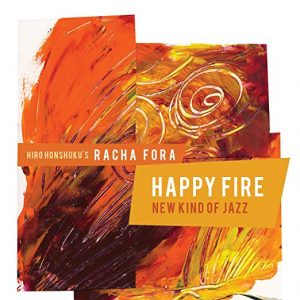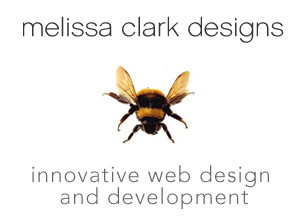 Hiroaki Honshuku jazz combo Racha Fora combines elements of jazz traditions from America, Brazil, and Japan. To say this kind of jazz is different would be an understatement. While Racha Fora has the fluidity, freedom, and discipline of jazz, its mesh of styles and influences on Happy Fire make it cry out to be heard as something new, inventive, and downright fun in a genre that has been under appreciated for far too long.
Hiroaki Honshuku jazz combo Racha Fora combines elements of jazz traditions from America, Brazil, and Japan. To say this kind of jazz is different would be an understatement. While Racha Fora has the fluidity, freedom, and discipline of jazz, its mesh of styles and influences on Happy Fire make it cry out to be heard as something new, inventive, and downright fun in a genre that has been under appreciated for far too long.
Racha Fora begin this disc with their take on the Miles Davis composition “Nardis,” a flute lead piece that also showcases aggressive drumming and assertive guitar playing. Hiroaki Honshuku contributes a sweet whistling of flute and piccolo over a dark, swaggering electric guitar. The contrast of light and dark works well as the two players are matched in talent, tempo, and drive.
This combo plays Jerome Kern’s “All The Things You Are” with a mesh of gentle, pretty flute notes and a Pat Methany influenced guitar dance by Andre Vasconcelos. Light guitar notes move around the beat with a mid tempo thrust, not rushed or forceful, just playful, swift. Juxtaposed with Honshuku’s upward spiral of tender flute melody, the guitar’s accented notes take on a heavier meaning, something that politely announces its presence. The guitar eventually gets wider and fuzzier, making the flute feel vulnerable in the piece while maintaining its brilliant contrast with the heavier sound.
Title track “Happy Fire,” composed by Racha Fora leader Honshuku stomps around with a King Crimson influenced bass line, a line that gives the flute a platform to speedily move around, like a dancer who reaches a frantic pace then dances franticly until the end. Flute notes and guitar chords dance like they’re in combat, one will thrust, the other parries. All of the contrasts between gentle notes, amidst all of the other moving parts, create a colorful mosaic of sound, something that demands the listener’s attention to keep up with the pace of talent on display here.
Duke Ellington’s “In A Sentimental Mood” showcases the Vasconcelos guitar in its mellow form, smooth chords that bridge the piece together with knobby low end notes. A flute skips along its own melodic flight path while acknowledging the lower notes by playing the spaces it leaves open. It’s pretty, accessible to all music fans.
Racha Fora play what could be called poppy jazz in “Estamos Ai” by Einhorn, Ferreria, and Werneck. This lively tune plays above Harvey Wirht’s cajon beats, a spicy flavored percussion that maintains a strutting presence. Pretty flute notes pipe up and around all, and violinist Rika Ikeda bounces her line off of a springy rhythm guitar line. She bows a sweet melody out of her instrument, a joyful bounce that plays with the tempo created by the other players. Clever.
Sebastian “C-bass” Chiriboga simultaneously puts a subtle back bone and back beat into George Gershwin’s “Summertime.” He keeps his tone dark, assertive, forcing the melodic instruments to play more fiercely. Chiriboga makes his bass line grow wider, fuzzier, giving the others more room to romp around, and the result is a hefty, speedy dose of engaging melody and intriguing sounds.
Racha Fora find the sweet delight in the melody of “Some Day My Prince Will Come” by Frank Churchill and work it into something even tastier. Flute notes flow like soft serve ice cream from a fountain with a cool rhythmic underpinning from more accented guitar notes. Wirht’s cajon work keeps an interesting pattern in the percussive support and this flavor makes “Prince” feel Latin. It’s the swirl of international jazz that keeps the listener glued.
The sly, mysterious “Blues In The Closet” by Oscar Pettiford finds Racha Fora sneaking around, a hide and go seek flute stops and starts. The melody reminds me of someone trying to run away from a prison spotlight. Bass and guitar spar with speedy resolve, each thrusting into the sonic landscape, like a film cutting to policeman chasing the man in the spotlight. All of the motivated melody and low end lines play over a peppy cajon beat, racing over a percussive feeling in a way that makes this an intriguing piece with many moving parts.
Racha Fora take ‘Nem Um Talvez” by Hermeto Pascoal into an otherworldly realm. Honshuku’s flute travels as gentle and light as a butterfly, seeming to hover in mid air, pleasant intervals of notes within its floating presence. A slight tug from the guitar chords and a moodier line from the violin completes this aural picture.
The combo close out with their take on Gershwin’s “A Foggy Day.” Lengthy, this arrangement gives these players each a chance to strut their stuff. A twisty pattern in the percussion slaps intrigue within their pattern. Honshuku’s electronic wind instrument offers a bubbly of sweet notes before Vasconcelos snaps his way through with his perfectly accented guitar rhythms.
Racha Fora show they are a creative force to reckon with in the greater-Boston/New England music scene. Their CD, produced by Hiroaki Honshuku at A-No-Ne Music studio in Waltham, Massachusetts and Dreamworld Productions in Lynn, Massachusetts, can be enjoyed by fans of jazz, prog-rock, fusion, and other genres. This jazz album rocks with strident melodies, subtle touches, aggressive grooves, and the band makes it seem easy to weld these elements into their jazz structures. A clever agent should get this band into the area’s best jazz clubs while also getting Racha Fora opening slots for explorative rock bands.

